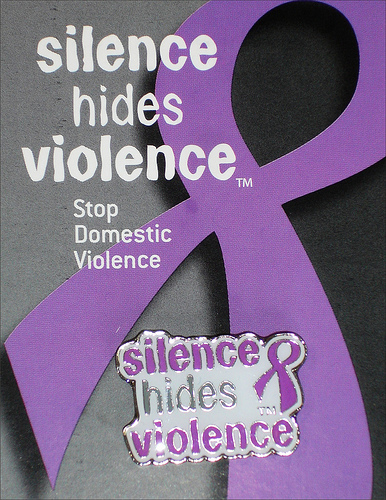
Abuse Is Not a Marital Issue
by brad on October 25, 2012 in Counseling Reflection with 3 Comments This is the ninth post in a sixteen part series on Marriage with a Chronically Self-Centered Spouse. In the posts nine through twelve we will examine guidelines for how to live at peace with a self-centered spouse âas far as it depends on you â (Rom. 12:18). These are not prescriptions with the promise of a better marriage, but wisdom principles that will allow you to inject as much peace into a situation as your spouse will allow.
Finding the Starting Point
This point has already been alluded to several times in this series of posts. But it is essential to thinking clearly and communicating effectively in a marriage to a self-centered spouse. This point represents a watershed distinction in the focal point of change. What is written here only applies when the relationship has moved past the first two stages described in Matthew 7:1-5 and reached the Matthew 7:6 level of destructiveness.
Once these levels of aggressive or passive destructiveness have been reached they must be acknowledged and addressed before any other type of marital intervention will have a lasting impact. Yet by the time this level of dysfunction is reached it will be such the normal for the marriage that the situationally unique events can easily become the focus of counseling. The passively self-centered spouse will predominantly use self-pity to move counseling in that direction. The actively self-centered spouse will use various forms of manipulation.
But both spouses must come to realize what it means to say that Abuse is not a marital issue.
When one person is willing to jeopardize the physical or emotional safety of another, then no marital issue is of greater importance than the self-centeredness of the offending spouse. To address âmarital issuesâ in this context is a drastic form of minimizing the offenses that have occurred. To believe that refining situational variables is going to cease the self-centeredness is like giving money to an alcoholic believing it will help them get sober by alleviating financial pressure.
For this reason, counseling in a self-centered marriage should not be marriage counseling. Both spouses should be counseled separately until they can consistently acknowledge that the abusive (or chronically neglectful) actions are the predominant issue and discuss their day-to-day challenges in light of this reality. To do otherwise is to confuse marital enrichment (refining a marriage within the bounds of healthy to become increasingly enjoyable) with marital restoration (focused attention at changing a problem that is a threat to the marriage).
It is common for the self-centered spouse to resist this approach to counseling saying, âIt canât be entirely my fault we are where we are. I thought marriage problems were 50-50 issues. This is an attempt to reframe the problem as a âmarital issue. By the time we get to Matthew 7:6 there has been a persistent unwillingness to address the marital issues that have resulted in a significant marital deterioration and a major shift in the power dynamics of the relationship. Until this is humbly acknowledged, efforts at restoring the marriage would only reinforce, or at best leave in place, this imbalance.
How long do you expect me to pay for my sins? How long am I expected to grovel for what Iâve done? I thought Christians were supposed to forgive. Each of these statements is a form of evasion. They imply unforgiveness for a sin that is being minimized. They is an attempt to use God and guilt to turn the tables and make themselves the victim of their own offenses.
Well, I know I can’t talk about anything my wife did wrong I’m not sure if I âm allowed to talk about what happened this week Do you want to hear my side of the story? Each of these statements attempts to make the counselors firmness in requiring acknowledgement of the abuse as being more restrictive than the self-centered spouse’s actions in his home. They are an attempt to portray that nothing he says can be right and make the restoration process seem futile.
These questioning games played by the self-centered spouse are an attempt to force the clean up of his sin-mess to be neater than the mess allows. Until these blame-shifting, self-pity questions cease and the self-centered pattern of living is focused on as the main issue, the counselor will serve as referee or prosecuting attorney if he/she tries to counsel the couple together.
The self-centered spouse is acknowledging the abuse as the main issue when he can consistently say things like, “Here is how I see what happened this week, can you help me see what I’m missing?” I realize how much I emphasize my emotions and minimize others. I saw it again this week, when My wife and I had a bad argument this week and each time I replay it I still think she’s totally wrong, but I’m learning not to trust myself that way. Can I tell you how I remember it? And then receive instruction and correction without becoming defensive.



